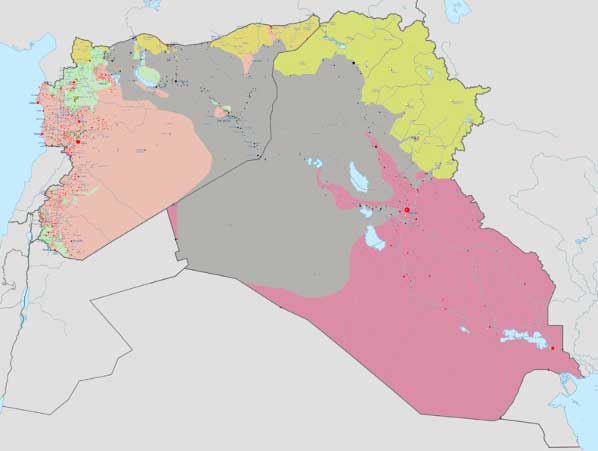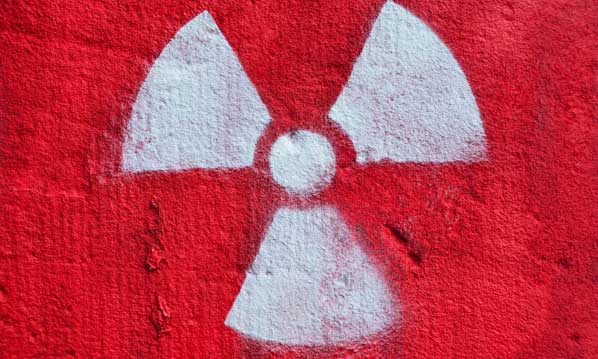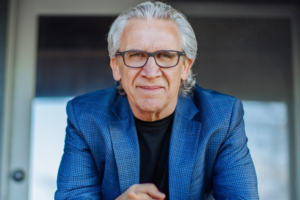The U.N. atomic agency said on Thursday it believed nuclear material which Iraq said had fallen into the hands of insurgents was “low grade” and did not pose a significant security risk.
Iraq told the United Nations that the material was used for scientific research at a university in the northern town of Mosul and appealed for help to “stave off the threat of their use by terrorists in Iraq or abroad”.
Iraq’s U.N. envoy this week also said that the government had lost control of a former chemical weapons facility to “armed terrorist groups” and was unable to fulfill its international obligations to destroy toxins kept there.
An al-Qaida offshoot, Islamic State in Iraq and Syria (ISIS), took over swathes of Syria and Iraq before renaming itself Islamic State in June and declaring its leader caliph—a title held by successors of the Prophet Mohammad.
The U.N. International Atomic Energy Agency (IAEA) “is aware of the notification from Iraq and is in contact to seek further details,” IAEA spokeswoman Gill Tudor said.
“On the basis of the initial information we believe the material involved is low grade and would not present a significant safety, security or nuclear proliferation risk,” she said. “Nevertheless, any loss of regulatory control over nuclear and other radioactive materials is a cause for concern.”
Iraqi U.N. Ambassador Mohamed Ali Alhakim told U.N. Secretary-General Ban Ki-moon in a July 8 letter that nearly 40 kg (88 pounds) of uranium compounds were kept at the university.
“Terrorist groups have seized control of nuclear material at the sites that came out of the control of the state,” he said.
However, a U.S. government source said it was not believed to be enriched uranium and therefore would be difficult to use to manufacture into a nuclear weapon.
Russian Foreign Ministry spokesman Alexander Lukashevich said the reported seizure likely posed no direct threat. But, he said: “The sheer fact that the terrorists … show unmistakeable interest in nuclear and chemical materials is, of course, very alarming”.

Areas of Iraq and Syria controlled by Islamic State (or ISIS) in gray; Iraqi government-controlled areas shown in pink; Iraqi Kurd-controlled areas in green. Map depicts political/military situation as of June 2014. Public domain image retrieved by Wikimedia Commons.
No ‘Dirty Bomb’ Material
Any loss or theft of highly enriched uranium, plutonium or other types of radioactive material is potentially serious as militants could try to use them to make a crude nuclear device or a “dirty bomb”, experts say.
Olli Heinonen, a former IAEA chief inspector, said that if the material came from a university it could be laboratory chemicals or radiation shielding, consisting of natural or depleted uranium.
“You cannot make a nuclear explosive from this amount, but all uranium compounds are poisonous,” Heinonen told Reuters. “This material is also not ‘good’ enough for a dirty bomb.”
In a so-called “dirty bomb”, radioactive material such as might be found in a hospital or factory is combined with conventional explosives that disperse the hazardous radiation.
Citing U.N. investigations dating back ten years or more, Heinonen said there should be no enriched uranium in Mosul. The Vienna-based IAEA helped dismantle Iraq’s clandestine nuclear programme in the 1990s—during Heinonen’s three decades there.
“Iraq should not have any nuclear installation left which uses nuclear material in these quantities,” he said.
Another proliferation expert, Mark Hibbs of the Carnegie Endowment think-tank, said: “The Mosul region and several university departments were scoured again and again by U.N. inspectors for a decade after the first Gulf War (1990-1991) and they know what materials were stored there.”
“These included tons of uranium liquid wastes, sources, uranium oxides, and uranium tetrafluoride. Some of these items are still there, but there’s no enriched uranium,” he said.
Iraq’s Foreign Ministry said atomic material samples were used at Mosul university laboratories in “very limited quantities” for scientific study and research only. Iraqi authorities had started to prepare a plan to get rid of them but the security situation had prevented the work, it added.
Additional reporting by Gabriela Baczynska in Moscow, Raheem Salman in Baghdad and Michelle Nichols at the United Nations
© 2014 Thompson Reuters. All rights reserved.
See an error in this article?
To contact us or to submit an article























